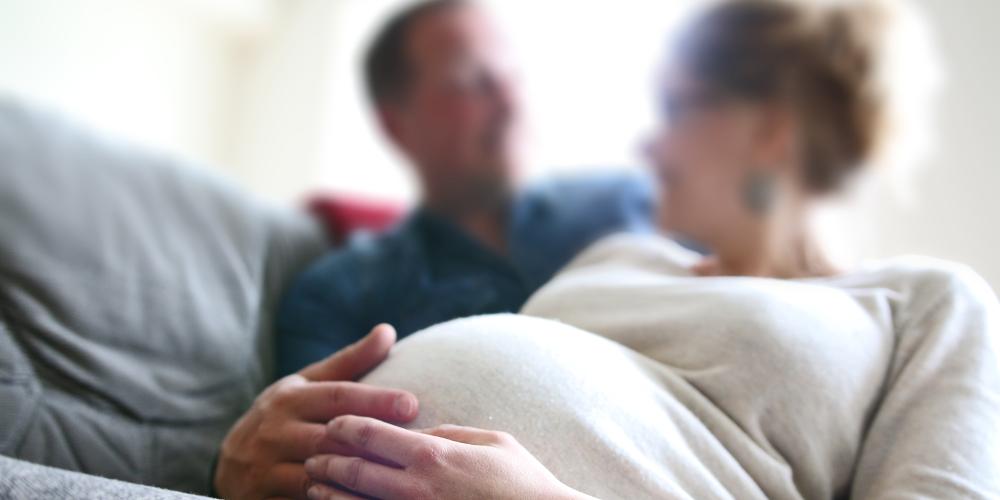
‘What men don't know... and women should know.’ In his new book, Prof. Dr Hendrik Cammu, professor at the VUB and affiliated with the UZ Brussels, takes us into the world of gynaecology and gynaecological ailments, without shying away from any taboos or issues.
What made you decide to write the book?
Hendrik Cammu: First and foremost, I wanted to provide more insight into the most common gynaecological problems. I have always considered it very important to translate science into everyday language. Secondly, I also wanted to increase men's knowledge about this subject. I have been seeing patients for 41 years and often, when men accompanied their wives to the gynaecologist, they were completely in the dark. That's a shame, because more knowledge and insight into possible gynaecological conditions also enables him to be more supportive and involved. That's no luxury when you consider that 70 to 80 per cent of women experience menopausal symptoms and that there are 90,000 women in Flanders with endometriosis. In other words, my book is not about exceptional symptoms, but about symptoms that many women, and therefore indirectly their husbands, will experience sooner or later. Conditions that occur less frequently than 1 per cent are not included in the book.
You have been seeing patients for several decades. Have you noticed an increase in the number of men accompanying their partners to the gynaecologist over the years?
Cammu: Honestly, not really. Men were rarely present, especially for routine check-ups. However, they did attend in cases of pregnancy, pregnancy complications or a real gynaecological problem.
Your book starts with the basics: the anatomy of the reproductive organs and the female cycle?
Cammu: That's right. That's where all knowledge starts. Take the word “vagina”, for example. In practice, it is synonymous with “everything down there”, when in fact it is the tubular female sexual organ that connects the vulva – the external genitalia – to the cervix. That's where the confusion often starts. There is also a lot of ignorance about the female cycle. Yet this knowledge is necessary if you want to understand, for example, how pregnancy occurs, but also many gynaecological diseases such as infertility, endometriosis or polycystic ovaries.
"Contraception is tailor-made. There is no one-size-fits-all solution"
What are still the biggest misconceptions when it comes to gynaecology?
Cammu: I notice that people still tend to think in black and white about a lot of things. Take contraception, for example. For a long time, the pill was the holy grail, whereas contraception requires a personalised approach. What is best for a woman, taking into account her history, wishes, lifestyle, etc.? There are natural contraceptives, and there is a wide range of hormonal contraceptives available: from the pill, the vaginal ring, the contraceptive injection, the hormonal coil to the copper coil and sterilisation. And even after a choice has been made, it needs to be followed up. People often forget that medicine is a profession of trial and error: if one thing doesn't work, we try something else.

What don't men know about gynaecological conditions... that women should know?
Cammu: Although there is now a slight shift in awareness: what the menopause means, how it evolves, what happens to hormone production and what the possible consequences are. To put it bluntly: men see their wives change during the menopause and are terrified. Hot flushes, vaginal dryness, joint pain, weight gain, mood swings... When you explain exactly why this happens, when you provide insight into possible symptoms and remedies, such as lifestyle changes, healthy nutrition, and, if necessary, medical treatments such as hormone therapy, you often see a kind of “aha moment” in your patient. And in her husband. I also notice that men are still very ignorant when it comes to complaints linked to the female anatomy. Pelvic floor problems, bladder prolapse, incontinence... I drew a lot during my consultations, and yes, that helps. Men are still a bit technical, aren't they? (laughs)
In your book, you talk about the pay gap and the orgasm gap in the same breath. Are they related at all?
Cammu: In 2021, women in Belgium earned on average 5 per cent less per hour than men. This puts Belgium in fifth place in Europe (average pay gap 12.7 per cent). So we're not among the worst performers in the class, and things are moving in the right direction. Among employees under the age of 25, the pay gap is non-existent. Moving on to the orgasm gap. This refers to the difference in the number of times men and women reach orgasm during heterosexual sex: 19 out of 20 men and 13 out of 20 women. Less than 20 per cent of women reach orgasm through penetration. It is nonsense to say that women do not consider it important to reach orgasm. In lesbian relationships, the orgasm gap is “only” 18 out of 20. At first glance, the wage gap and the orgasm gap have nothing to do with each other, and yet... In both cases, women benefit from standing up for themselves more, and I'm talking about both wage negotiations and in bed.
"Do you have to be a woman to be a good gynaecologist? I don't think so"
Are women still treated unfairly in medical research today?
Cammu: Fortunately less than in the past, but the difference is still there. There was a time when medical research on men was conveniently applied to women and children as well. Fortunately, those days are over. However, we still see gender bias in the academic world. Take research into heart disease, for example: no less than 80 per cent of all scientific publications are still led by men. In my field, gynaecology, they account for 55 per cent of studies. Fortunately, things are gradually moving in the right direction. Whereas twenty years ago, only a quarter of the most important medical researchers were women, by 2023 that figure had risen to 40 per cent.
Is it extra difficult for a male gynaecologist to fully understand female gynaecological complaints and their impact?
Cammu: That's a question I expected, and the reason why I was a bit hesitant to start writing this book. When I started my gynaecology training at the VUB in UZ Brussels in 1981, gynaecology/obstetrics was mainly a male domain. At UZ Brussel, there were eleven assistants, including four women, which was exceptionally high at the time. Today, it is completely different, and almost 90 per cent of our assistants are women. However, I don't think it's entirely fair to say that you have to be a woman to be a good gynaecologist. Does that mean you have to be a man to be a good urologist? Or do you have to have had cancer yourself to be able to empathise sufficiently with the problems of cancer patients? I don't think so. Most doctors do not experience the same symptoms in their patients. I, and many of my colleagues, have mirror neurons that allow me to imagine all kinds of symptoms and empathise sufficiently with my patient's condition. In the long term, I would find it very interesting to see research into the impact of the feminisation of our profession. What is changing fundamentally? Are doctors taking more time for their patients? Are more or fewer caesarean sections being performed? I am genuinely curious about the results.
Bio Hendrik Cammu
Prof. Dr. Hendrik Cammu is a gynaecologist, professor and head of the urology department at UZ Brussels (retired since 2021). He currently works one day a week as an enthusiastic lateral entrant in the second year of GBS Rode in Meise. He is a passionate cyclist and film lover.